 Looking at Christopher Bigelow today, a normally dressed, well-groomed, married Mormon man with matured children who lives in Provo, Utah, one of the most conservative, Mormony cities in conservative, Mormony Utah, and the home of Brigham Young University, you’d never guess what his origins are.
Looking at Christopher Bigelow today, a normally dressed, well-groomed, married Mormon man with matured children who lives in Provo, Utah, one of the most conservative, Mormony cities in conservative, Mormony Utah, and the home of Brigham Young University, you’d never guess what his origins are.
The only hint of his colorful past would be his lingering beard, conservatively trimmed. And his attitude toward Mormon culture, if you get him to talk about it.
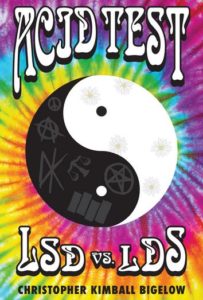 He talks about it in his autobiographical book Acid Test: LSD vs. LDS. Very personal, very frank, no holds barred, he lays it out as naked as a nudist, and does so without a hint of apology. He tells it like it is, and for trepidatious Mormons who might fear even touching the book lest their fingertips become corrupted, it all works out well in the end.
He talks about it in his autobiographical book Acid Test: LSD vs. LDS. Very personal, very frank, no holds barred, he lays it out as naked as a nudist, and does so without a hint of apology. He tells it like it is, and for trepidatious Mormons who might fear even touching the book lest their fingertips become corrupted, it all works out well in the end.
Depending on your point of view.
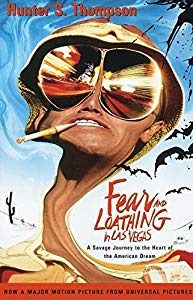 I’ve never read Hunter Thomas’ Fear and Loathing in Las Vegas, but I just educated myself by reading the Wikipedia article, and Acid Test feels to me like the Mormon counterpart to what I imagine the book is like. Weed and LSD and countercultural rebellion abound, and we even end up in Las Vegas for a time. Being the Mormon counterpart, I imagine it’s also tamer than Fear and Loathing, not least because Bigelow throughout his amoral explorations in rebellion still seems to hold back, plagued no doubt by that pesky Mormon influence in his youth.
I’ve never read Hunter Thomas’ Fear and Loathing in Las Vegas, but I just educated myself by reading the Wikipedia article, and Acid Test feels to me like the Mormon counterpart to what I imagine the book is like. Weed and LSD and countercultural rebellion abound, and we even end up in Las Vegas for a time. Being the Mormon counterpart, I imagine it’s also tamer than Fear and Loathing, not least because Bigelow throughout his amoral explorations in rebellion still seems to hold back, plagued no doubt by that pesky Mormon influence in his youth.
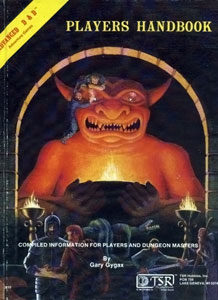 His explorations begin around high school graduation. Mormonism appears to have taken no hold on his soul, as if it were made of teflon that the Mormon grime slides right off of. He has a passion for punk culture, the incarnation his rebellious tendencies manifest themselves in, heavily interpreted through the philosophies of Dungeons and Dragons. He declares his moral orientation to be “chaotic neutral,” a Dungeons and Dragons concept, that means he recognizes no authority over his life, and he’s neither goody-goody nor wickedly out to harm people. He just wants to live his life in a manner most beneficial to himself, minimizing the damage his self-absorption might cause in other people’s lives.
His explorations begin around high school graduation. Mormonism appears to have taken no hold on his soul, as if it were made of teflon that the Mormon grime slides right off of. He has a passion for punk culture, the incarnation his rebellious tendencies manifest themselves in, heavily interpreted through the philosophies of Dungeons and Dragons. He declares his moral orientation to be “chaotic neutral,” a Dungeons and Dragons concept, that means he recognizes no authority over his life, and he’s neither goody-goody nor wickedly out to harm people. He just wants to live his life in a manner most beneficial to himself, minimizing the damage his self-absorption might cause in other people’s lives.
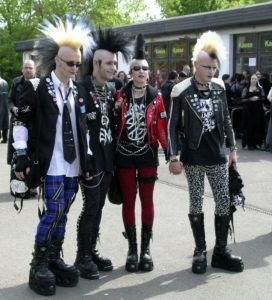 Over time he fancies himself a sort of punk apostle, a messenger for the world to spread the gospel of free-wheeling but not evil punk in all its forms: music, fashion, art, attitude, culture, drugs, and sex. In the process he becomes as critical of other people’s interpretation of punk as Mormons can often be with other people’s interpretation of God.
Over time he fancies himself a sort of punk apostle, a messenger for the world to spread the gospel of free-wheeling but not evil punk in all its forms: music, fashion, art, attitude, culture, drugs, and sex. In the process he becomes as critical of other people’s interpretation of punk as Mormons can often be with other people’s interpretation of God.
His style is about as conversational and informal as you can get. You feel as if you were sitting around a campfire with friends, and someone said, “Chris, tell us about your youth.” The tale seems to ramble from one disjointed thing to another at first, but slowly over chapters, you notice a pattern emerging, a plot arc arising from the punk chaos, and you realize Chris is an accomplished storyteller who knows what he’s doing without letting on.
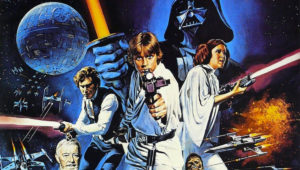 He filters his view of Mormonism through a myriad of pop references, from Dungeons and Dragons to Star Wars to LSD trips to the occult. He uses a completely new vocabulary of his own to describe spiritual things that Mormons generally use standard Mormonspeak for, that’s both entertaining and revealing in its own way. One wonders how this train wreck of a young adult life is going to go down in flames, but true to Mormon optimism, the rearing of his youth has never quite left him, and in the end, his quest for the ultimate chaotic neutral punk lifestyle runs headlong into the moral realities of life. His crisis consummates in a very literal experience of dark forces.
He filters his view of Mormonism through a myriad of pop references, from Dungeons and Dragons to Star Wars to LSD trips to the occult. He uses a completely new vocabulary of his own to describe spiritual things that Mormons generally use standard Mormonspeak for, that’s both entertaining and revealing in its own way. One wonders how this train wreck of a young adult life is going to go down in flames, but true to Mormon optimism, the rearing of his youth has never quite left him, and in the end, his quest for the ultimate chaotic neutral punk lifestyle runs headlong into the moral realities of life. His crisis consummates in a very literal experience of dark forces.
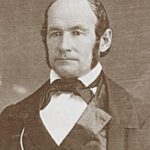 Being a direct descendent of Mormon VIP Heber C. Kimball, Bigelow includes in his tale intersections with prominent Mormon personalities and events, including intimate moments with uncle Spencer W. Kimball and personal connections with counterfeiter and bomber Mark Hoffman. He almost seems to be a fly on the wall now and then for events that are familiar within Mormonism, a kind of Mormon Forrest Gump.
Being a direct descendent of Mormon VIP Heber C. Kimball, Bigelow includes in his tale intersections with prominent Mormon personalities and events, including intimate moments with uncle Spencer W. Kimball and personal connections with counterfeiter and bomber Mark Hoffman. He almost seems to be a fly on the wall now and then for events that are familiar within Mormonism, a kind of Mormon Forrest Gump.
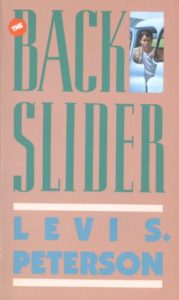 Another book Acid Test reminds me of is Levi Peterson’s The Backslider, a Mormon novel set in an earlier generation about a young man struggling with his Mormonism. Acid Test is a sort of Backslider for the 1980’s, echoing its themes while presenting a radically different milieu to deliver them in, since the two generations were radically different. Both their endings come to their resolutions in ways that are far from traditional Mormon expectations, through a literary vocabulary unfamiliar to traditional Mormon terms.
Another book Acid Test reminds me of is Levi Peterson’s The Backslider, a Mormon novel set in an earlier generation about a young man struggling with his Mormonism. Acid Test is a sort of Backslider for the 1980’s, echoing its themes while presenting a radically different milieu to deliver them in, since the two generations were radically different. Both their endings come to their resolutions in ways that are far from traditional Mormon expectations, through a literary vocabulary unfamiliar to traditional Mormon terms.
![]() Acid Test is the first volume in an autobiographical trilogy, the “Test Trilogy” to be specific. Future books are titled Mission Test and Zion Test, which give us hints of what’s to come. Bigelow went on to establish his own publishing company called Zarahemla Books that publishes Mormon-themed books which he calls “alternative.” He’s publishing his own autobiographical trilogy through it, and it’s interesting to consider that his chaotic neutral punk days have lingered on into his Mormonism with the types of books he seeks to publish. His book Acid Test becomes a kind of meta-symbol for his life and his publishing company.
Acid Test is the first volume in an autobiographical trilogy, the “Test Trilogy” to be specific. Future books are titled Mission Test and Zion Test, which give us hints of what’s to come. Bigelow went on to establish his own publishing company called Zarahemla Books that publishes Mormon-themed books which he calls “alternative.” He’s publishing his own autobiographical trilogy through it, and it’s interesting to consider that his chaotic neutral punk days have lingered on into his Mormonism with the types of books he seeks to publish. His book Acid Test becomes a kind of meta-symbol for his life and his publishing company.
It’s also a fascinating read if you want to experience Mormonism through an LSD acid trip.
LSD, LDS… groovy baby.